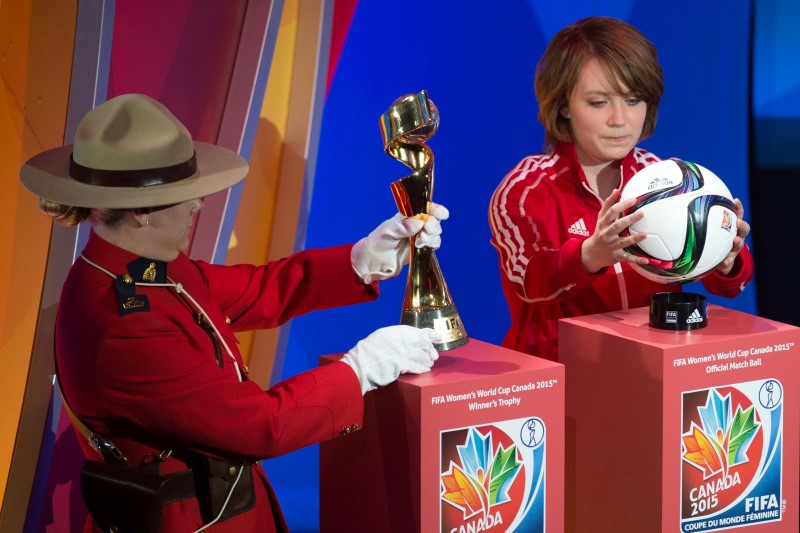By Philip O'Connor
(Reuters) - Canada will host the largest Women's World Cup in history over the next month where the neighboring United States are a hot favorite to snap a 16-year title drought at soccer's showpiece event.
With a legal fight over the use of artificial turf now in the rear-view mirror, Canada will kick off the June 6-July 5 tournament against China in the first international competition to be played entirely on plastic pitches.
Eighth-ranked Canada qualified as hosts and are hoping the backing of a passionate fan base and the experience of winning a bronze medal at the London Olympics can carry them deep into the tournament.
The United States will face stiff European opposition led by continental champions and top-ranked Germany, as well as an Asian challenge spearheaded by holders Japan, who beat the Americans on penalties in the 2011 World Cup final.
Taking place for the seventh time, the Women's World Cup will feature an expanded field of 24 teams, twice as many as when it started back in 1991 and eight more than in the last three tournaments.
The 24 nations will be divided into six groups of four, with matches taking place in six cities across Canada.
The top two teams in each group will make it through to the last 16, where they will be joined by the four best third-placed teams, and all eyes will be on Canada's near neighbors, who are hotly-tipped to win a third world title.
The Americans will cross the border having won the last two Olympic gold medals, but despite the growing popularity of the sport in the United States, they are without a World Cup win since securing their second title in 1999.
The heartbreaking loss on penalties to Japan in 2011 will loom large in the minds of those who took part, but Abby Wambach and Alex Morgan are likely to team up again up front as they look to avenge that loss.
Though the Americans are a popular pick to take the trophy, it is European champions Germany who are ranked number one in the world, with the United States just behind them in second.
POTENT DUO
Anchored by Nadine Angerer in goal, the German side is full of pace and power, and with the potent duo of Anja Mittag and Celia Sasic up front, they will be a handful for any side.
The Germans are part of a wave of European teams all in with a realistic shot of making the semi-finals.
European runners-up Norway will provide a physical test for their opponents, and in teenage striker Ada Hegerberg they have one of the rising stars of the game.
Sweden are well-organized by former U.S. coach Pia Sundhage but will have to be more clinical in front of goal if they are to survive a 'Group of Death' featuring the United States, 10th-ranked Australia and African champions Nigeria.
Slick, tough and skillful, France will also be aiming to go deep in this tournament, and even if England, Netherlands, Switzerland and Spain lack the depth to go all the way, all are capable of causing an upset in the knockout stages.
Asian champions Japan arrive to defend their World Cup crown with a strong squad that may be short on well-known names but is bristling with speed and passing ability.
Australia are still smarting from a 1-0 defeat to Japan in the Asian Women's Cup final a year ago, and the Matildas will be looking for another strong showing in Canada.
There are however problems in terms of opening up the tournament to 24 teams. Despite the presence of a skillful Brazil side, the South American contingent is perhaps not as strong as they could be.
At 33 in the world, Nigeria are Africa's top-ranked contender, and there is a risk that smaller nations such as Thailand, Ecuador and Ivory Coast could all be on the end of some hidings in the group stage.
Top players criticized the decision to play all games on artificial turf, with many alleging gender discrimination in a lawsuit, since dropped, against FIFA and the Canadian Soccer Association as every men's World Cup has been on real grass.
For all the controversy over the surface, every one of the 552 players taking part in the biggest women's soccer tournament in history will have a level playing field when they arrive in Canada.

It will then be up to them to decide who lifts the Women's World Cup trophy in Vancouver on July 5.